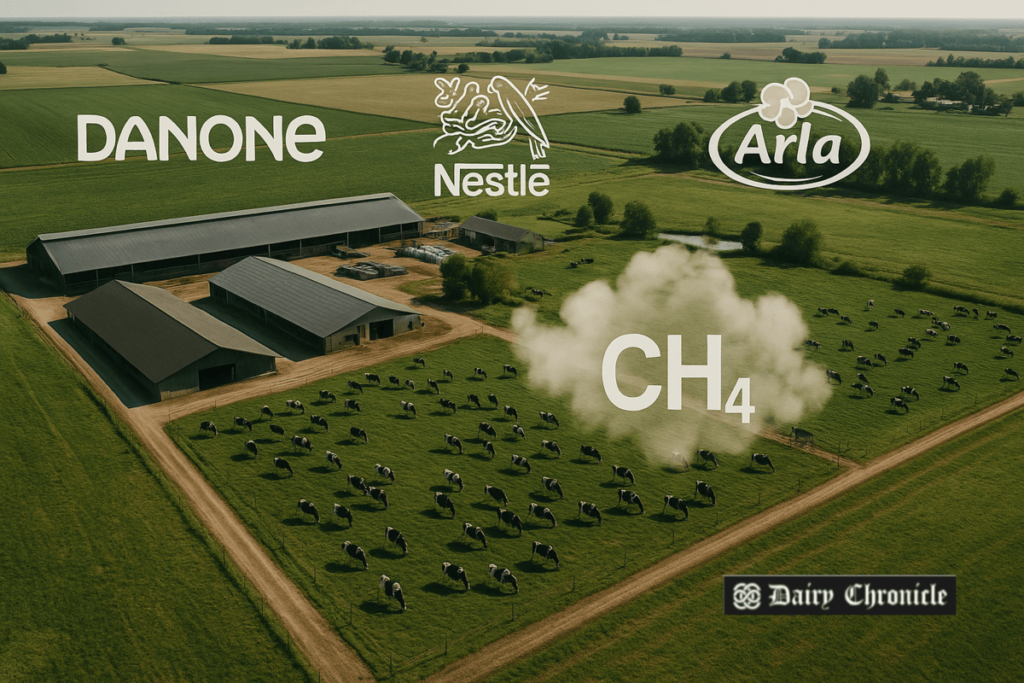A report by Changing Markets Foundation reveals that most major dairy companies lack concrete methane reduction targets, despite the dairy sector being a major contributor to global methane emissions. Only Danone has set a methane-specific goal, while most others have not implemented credible plans or transparent reporting. The findings call for stronger regulatory action to enforce climate accountability across the dairy industry.
A new report from the Changing Markets Foundation has revealed that the world’s largest dairy companies are failing to take sufficient action to reduce methane emissions, a highly potent greenhouse gas that plays a major role in global warming. The findings raise serious concerns about the industry’s commitment to climate goals and call for stronger regulatory oversight.
Methane, primarily emitted through animal agriculture, accounts for 32% of global methane emissions, with cattle farming being a leading contributor. Despite this, the report assessed 20 leading global dairy producers and coffee chains—representing nearly half of the $420 billion global dairy market—and found that the majority have no methane-specific reduction targets, credible action plans, or transparent emissions reporting.
Among all companies evaluated, Danone stood out as the only one with a methane-specific target, showcasing a comparatively proactive approach to climate accountability. Nestlé and General Mills followed, though only Danone and Nestlé were shown to have achieved measurable reductions in their methane emissions. Notably, Nestlé was the only company to explicitly support reducing dairy consumption as a climate strategy.
Other major companies, such as Arla Foods, have publicly stated their commitment to sustainability. However, the report criticizes such voluntary corporate pledges as inadequate given the urgency of the climate crisis. It emphasizes the need for governments—especially in Europe—to enforce science-based methane reduction targets and compel the industry to adopt transparent, measurable actions.
A Missed Opportunity
The report highlights that the industry’s sluggish response to methane mitigation not only increases climate risk, but also represents a missed opportunity for innovation and leadership in sustainable agriculture. With methane having more than 80 times the warming power of CO₂ over a 20-year period, reducing emissions from livestock is seen as one of the fastest ways to slow global warming in the short term.
Industry Insight
The dairy sector’s lack of credible action on methane emissions presents both a reputational liability and a strategic blind spot. As global consumers and regulators demand more transparency and environmental responsibility, companies that fail to act may face increasing scrutiny, while those investing in genuine sustainability strategies could emerge as leaders in a rapidly evolving marketplace.



